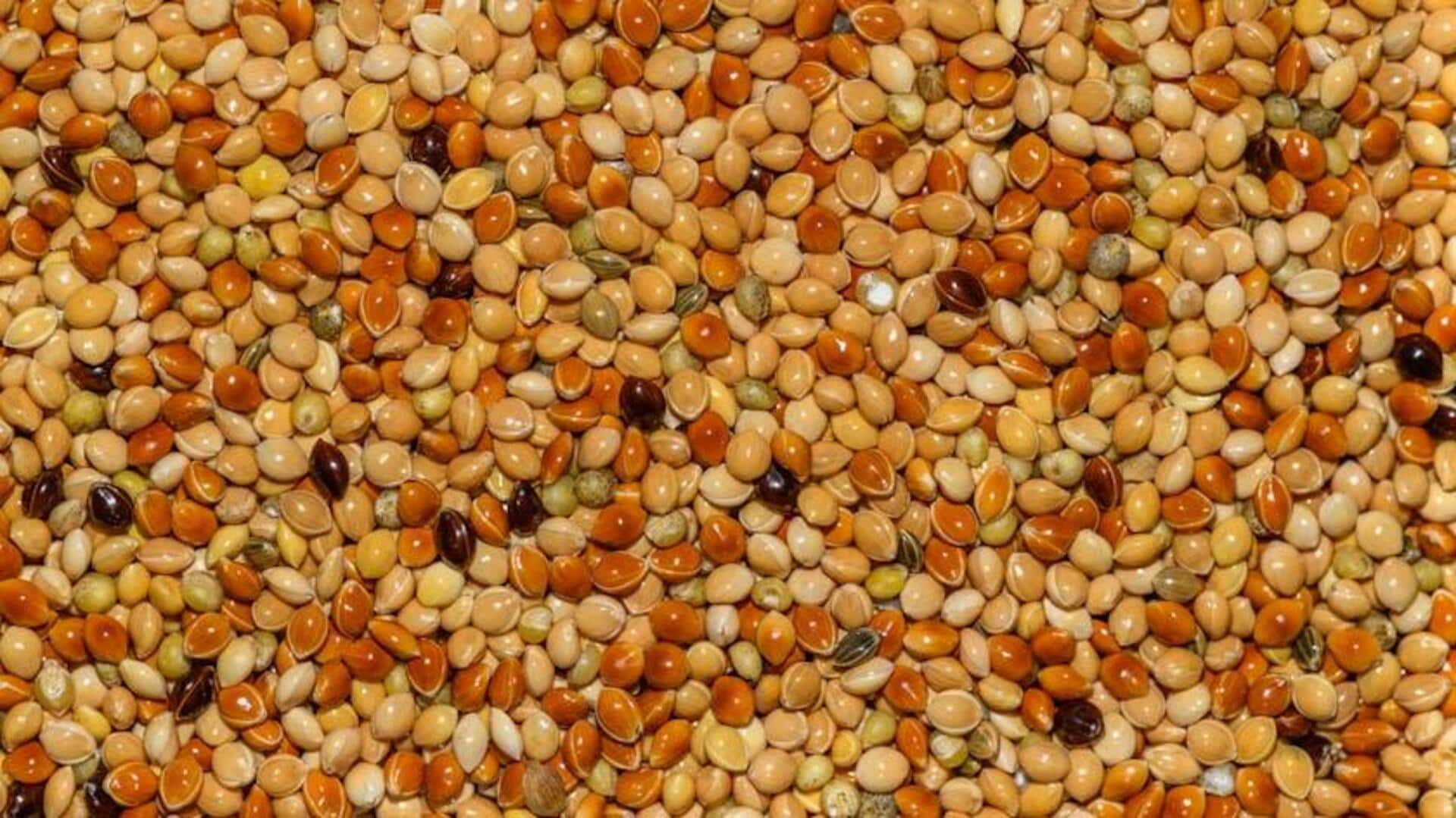
Upgrade your meals with these nutrient-packed grains
What's the story
African grains are a treasure trove of flavors and nutrients, making them perfect for vegetarian dishes.
These grains—millet, sorghum, teff—are not just versatile but also loaded with vitamins and minerals. They form an amazing base for whipping up a range of vegetarian culinary masterpieces.
Exploring these grains opens up a world of textures and tastes that make dining more exciting while keeping health and sustainability in check.
Millet
Millet: A versatile grain
Millet is a staple in many African countries owing to its adaptability to different climates.
Gluten-free and rich in magnesium, phosphorus, and iron, this grain can be used in salads or as a rice replacement in pilafs.
Its mild flavor makes it absorb spices well, so it can be used to make savory dishes and sweet puddings.
Incorporating millet into meals can add nutritional value without compromising on taste.
Sorghum
Sorghum: Nutrient-rich option
Sorghum is another ancient grain that grows in arid places of Africa.
It's rich in protein and fiber and gluten-free.
You can use sorghum flour to make flatbreads or pancakes, providing a hearty alternative to wheat-based products.
The grain can be cooked like rice or popped like popcorn for snacks.
Its mildly nutty flavor goes well with different ingredients, improving the overall dish.
Teff
Teff: Small grain with big benefits
Despite being so tiny, teff packs a powerful nutrition punch. It has calcium, iron, and protein, and is naturally gluten-free.
In Ethiopia, teff flour is commonly used to prepare injera—a spongy flatbread served with stews or veggies.
Other than traditional practices, you can add teff into porridge or baked goods such as muffins or cookies to enhance their nutrition value.
Amaranth
Amaranth: Ancient powerhouse
Amaranth has been grown for thousands of years all over Africa, owing to its ability to withstand harsh conditions.
The pseudo-grain is highly nutritious, containing high protein levels along with lysine—an amino acid that is often deficient in other grains—and important minerals like calcium and magnesium that promote bone health among vegetarians who may otherwise miss out on dairy sources available globally today.